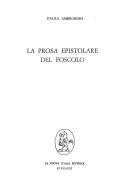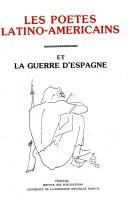| Listing 1 - 10 of 15 | << page >> |
Sort by
|
Book
Year: 1875 Publisher: Edinburgh : Edmonston & Douglas; [etc., etc.],
Abstract | Keywords | Export | Availability | Bookmark
 Loading...
Loading...Choose an application
- Reference Manager
- EndNote
- RefWorks (Direct export to RefWorks)
Hogenberg, Nikolas, --- Clement --- Charles --- Coronation.
Book
Year: 1875 Publisher: Edinburgh : Edmonston & Douglas; [etc., etc.],
Abstract | Keywords | Export | Availability | Bookmark
 Loading...
Loading...Choose an application
- Reference Manager
- EndNote
- RefWorks (Direct export to RefWorks)
Processions --- History --- Hogenberg, Nikolas, --- Clement --- Charles --- Coronation.
Article
Abstract | Keywords | Export | Availability | Bookmark
 Loading...
Loading...Choose an application
- Reference Manager
- EndNote
- RefWorks (Direct export to RefWorks)
Ashton Raggatt McDougall --- Koulouras, Nikolas --- MacDougall, Ian --- Australië
Book
Year: 1975 Publisher: London : Wildenstein,
Abstract | Keywords | Export | Availability | Bookmark
 Loading...
Loading...Choose an application
- Reference Manager
- EndNote
- RefWorks (Direct export to RefWorks)
Theophilos, Hadji-Michail --- Kontoglou, Fotis --- Hadjikyriakos-Ghika, Nikolas --- Tsarouchis, Yannis --- Griekenland
Book
ISBN: 9783954764846 Year: 2022 Publisher: Berlin DISTANZ Verlag
Abstract | Keywords | Export | Availability | Bookmark
 Loading...
Loading...Choose an application
- Reference Manager
- EndNote
- RefWorks (Direct export to RefWorks)
Art --- installations [visual works] --- multimedia works --- Kinetic Art --- programming [function] --- robotics --- Schmid-Pfähler, Nikolas --- Liebl, Carolin
Book
ISBN: 3631883137 3631883145 Year: 2022 Publisher: Frankfurt a.M. : Peter Lang GmbH, Internationaler Verlag der Wissenschaften,
Abstract | Keywords | Export | Availability | Bookmark
 Loading...
Loading...Choose an application
- Reference Manager
- EndNote
- RefWorks (Direct export to RefWorks)
Der Sammelband widmet sich den Formationen und Diskursen, in denen das Subjekt in der Gegenwart Präsenz gewinnt. Der Fokus liegt auf theore-tischen Konzepten, poetologischen Reflexionen und lyrischen Gestaltungen. Die untersuchten Texte entstammen der russischen, ukrainischen, deutschen, chinesischen, japanischen und chilenischen Gegenwartslyrik.
Benjamin --- Diskurs --- Dmitri --- Fechner --- Gegenwart --- Henrieke --- Hiroko --- Ich --- Immer --- Kloss --- Lyrik --- Masumoto --- Matthias --- Nikolas --- Perspektiven --- Philosophie --- Poesie --- Poetik --- Sandler --- Stahl --- Stephanie --- Subjekts? --- Transformation --- Veränderung --- Wiederkehr

ISBN: 8822107624 Year: 1989 Publisher: Firenze Nuova Italia
Abstract | Keywords | Export | Availability | Bookmark
 Loading...
Loading...Choose an application
- Reference Manager
- EndNote
- RefWorks (Direct export to RefWorks)
Foscolo, Ugo --- -Criticism and interpretation --- Foscolo, Ugo, --- Didimo, Chierico, --- Phōskolos, Ougos, --- Foscolo, Niccolò, --- Phōskolos, Nikolas Ougos, --- Criticism and interpretation. --- Foscolo (ugo), ecrivain italien, 1778-1827 --- Litterature italienne --- Correspondance --- 18e-19e siecles
Book
ISBN: 144261983X 9781442619838 9781442649262 1442649267 1442619848 Year: 2014 Publisher: Toronto
Abstract | Keywords | Export | Availability | Bookmark
 Loading...
Loading...Choose an application
- Reference Manager
- EndNote
- RefWorks (Direct export to RefWorks)
Ugo Foscolo's Tragic Vision in Italy and England examines an underexplored aspect of Foscolo's literary career: his tragic plays and critical essays on that genre.
Italian drama (Tragedy) --- Italian drama --- Foscolo, Ugo, --- Didimo, Chierico, --- Phōskolos, Ougos, --- Foscolo, Niccolò, --- Phōskolos, Nikolas Ougos, --- Criticism and interpretation. --- History and criticism. --- England. --- Angleterre --- Anglii͡ --- Anglija --- Engeland --- Inghilterra --- Inglaterra


ISBN: 287854725X 2903019525 Year: 2017 Publisher: Paris : Presses Sorbonne Nouvelle,
Abstract | Keywords | Export | Availability | Bookmark
 Loading...
Loading...Choose an application
- Reference Manager
- EndNote
- RefWorks (Direct export to RefWorks)
La guerre civile d'Espagne a provoqué chez les intellectuels du monde entier un choc émotionnel profond, qui a motivé des réactions de tous ordres : les uns ont milité, les autres ont écrit, d'autres encore ont pris un fusil, certains y ont laissé leur vie. Dès les premiers jours de la guerre civile - marqués, entre autres, par la mort de Federico Garcia Lorca - les poètes hispano-américains réagissent : César Vallejo, Pablo Neruda, Nicolas Guillén, trois des grandes voix poétiques du continent, se sont joints au chœur des hommes concernés par ce drame espagnol qui préfigurait l'holocauste à venir. Ce sont leurs témoignages que nous essayons de faire revivre et d'analyser ici.
Spanish American literature --- History and criticism. --- Vallejo, César, --- Neruda, Pablo, --- Guillén, Nicolás, --- Criticism and interpretation. --- Spain --- History --- Literature and the war. --- Gilʹen, Nikolas, --- Guillén y Batista, Nicolás, --- Batista, Nicolás Guillén y, --- Gkillien, Nikolas, --- Neruda, Pablo --- Vallejo Mendoza, César Abraham, --- Mendoza, César Abraham Vallejo, --- Vallejo, César Abraham, --- Valʹekho, Sesar, --- Valliecho, Kaisar, --- Vallejo, Cholo, --- poésie --- Amérique latine --- histoire --- XXème siècle --- littérature --- guerre civile --- Espagne
Book
ISBN: 9780228005452 0228005450 9780228007029 Year: 2021 Publisher: Montreal McGill-Queen's University Press
Abstract | Keywords | Export | Availability | Bookmark
 Loading...
Loading...Choose an application
- Reference Manager
- EndNote
- RefWorks (Direct export to RefWorks)
In the turbulent period following the First World War the young Count Richard Coudenhove-Kalergi founded the Pan-European Union, offering a vision of peaceful, democratic unity for Europe, with no borders, a common currency, and a single passport. His political congresses in Vienna, Berlin, and Basel attracted thousands from the intelligentsia and the cultural elite, including Albert Einstein, Thomas Mann, and Sigmund Freud, who wanted a United States of Europe brought together by consent. The Count's commitment to this cooperative ideal infuriated Hitler, who referred to him as a 'cosmopolitan bastard' in Mein Kampf. Communists and nationalists, xenophobes and populists alike hated the Count and his political mission. When the Nazis annexed Austria, the Count and his wife, the famous actress Ida Roland, narrowly escaped the Gestapo. He fled to the United States, where he helped shape American policy for postwar Europe. Coudenhove-Kalergi's profile was such that he served as the basis for the fictional resistance hero Victor Laszlo in the film Casablanca. A brilliant networker, the Count guided many European leaders, notably advising Winston Churchill before his 1946 Zurich speech on Europe. A friend to both Chancellor Konrad Adenauer and President Charles de Gaulle, Coudenhove-Kalergi was personally invited to the High Mass in Rheims Cathedral in 1961 to celebrate Franco-German reconciliation. A provocative visionary for Europe, Coudenhove-Kalergi thought and acted in terms of continents, not countries. For the Count, the United States of Europe was the answer to the challenges of communist Russia and capitalist America. Indeed, he launched his Pan-European Union thirty years before Jean Monnet set up the European Coal and Steel Community, the precursor to the European Union. Timely and capitivating, Martyn Bond's biography offers an opportunity to explore a remarkable life and revisit the impetus and origins of a unified Europe.
European federation. --- Internationalists --- Coudenhove-Kalergi, Richard Nicolaus, --- Europe --- History --- Politics and government --- Politicians --- European federation --- Federation of Europe --- Pan Europa movement --- Paneuropean federation --- United States of Europe (Proposed) --- Federal government --- Regionalism (International organization) --- Internationalism --- von Coudenhove-Kalergi, Richard Nicolaus --- Aoyama, Eijirō, --- Calergi, R. V. Coudenhove-, --- Codenhove-Kalergi, Richard Nicolaus, --- Coudenhove-Calergi, R. V., --- Kalergi, Richard Nicolaus Coudenhove-, --- Kudenkhove-Kalergi, Rikhard Nikolas fon,
| Listing 1 - 10 of 15 | << page >> |
Sort by
|

 Search
Search Feedback
Feedback About UniCat
About UniCat  Help
Help News
News